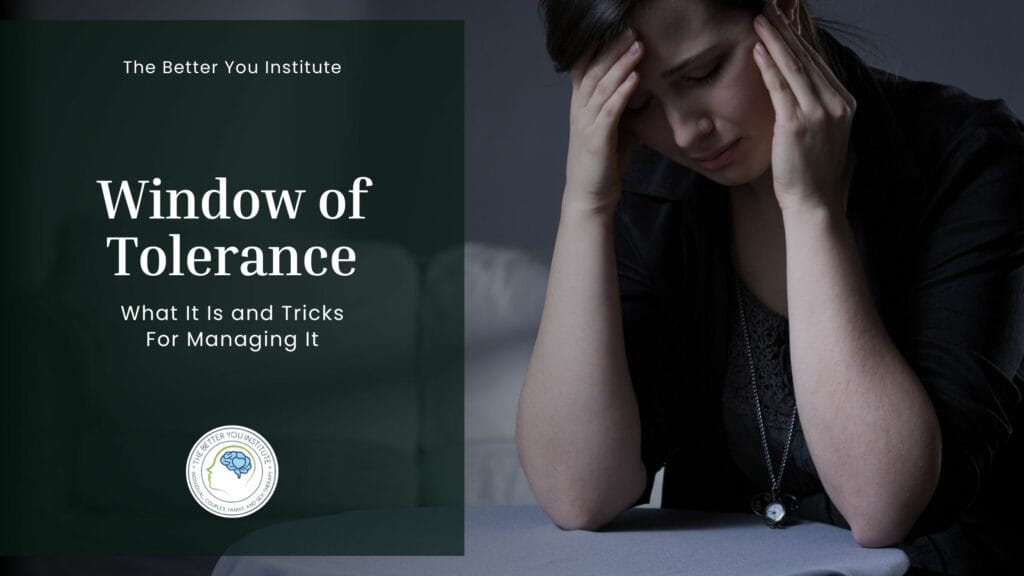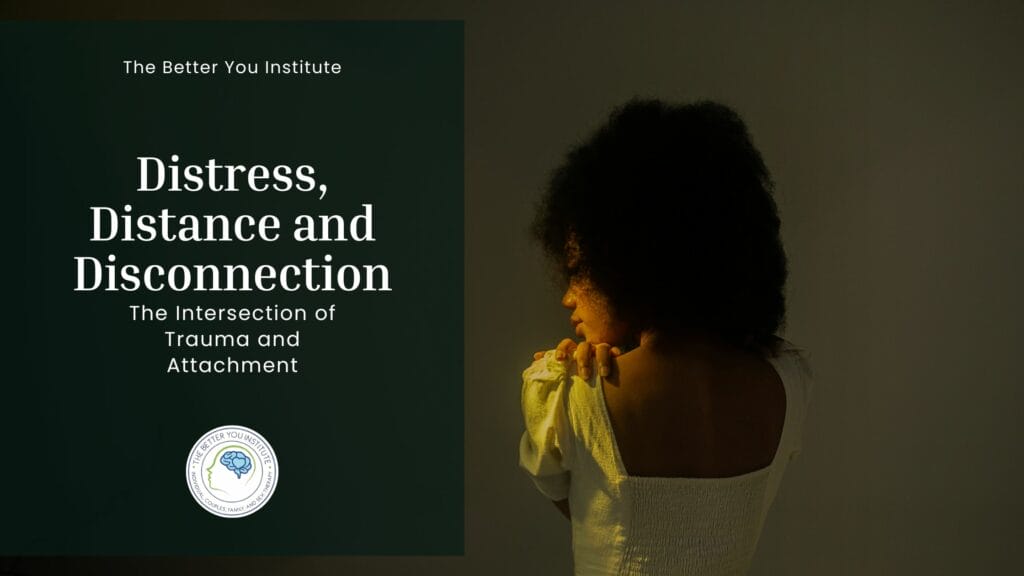Have you ever told yourself “I need a break from my relationship?” Taking a break from your relationship can offer many positives and hindrances to a relationship. Although the ultimate goal is to stay together, taking a break and having space can provide clarity, reprieve, and serve as a reset button. On the other hand, breaks can serve as a holding place for an inevitable final separation. In this tip, you will learn how to get the most out of a break from your intimate relationship.
If you’re reading this article, it’s clear you understand the gravity of the decision to take a break from your partner(s). However, you may not know where to start and what to think about when considering a break. So, first, it’s essential to think about how you got to this point. What is happening in the relationship that leads you to believe a break could be helpful?
Table of Contents
Possible Reasons for Taking A Break from the Relationship
- Fighting all the time
- Infidelity
- Substance abuse
- At a crossroad of what each partner wants out of the relationship/life/each other/ themselves
- Divorce has been mentioned but not sure it’s the right decision
- Lack of intimate/emotional connection
- Lack of sexual connection
- Blended family issues
- Grief and Loss of a child
- Anything else?
Depending on how you got to this point of exploring whether you should take a break from your relationship will guide the decision to take a break.
Fighting All of the Time
You find it challenging to be in the same room with your partner. Even the things that seem so trivial can start a fight. When you think about your relationship, you begin to realize significant hang-ups that come out in surface-level arguments. Or you have deep-seated, painful arguments that hit each of you in your core. You start to participate in Gottman’s Four horsemen (criticism, contempt, defensiveness, and stonewalling). These fights have gone beyond each of you feeling like yourself during them.
If the constant fighting pushes you toward taking a break from the relationship, each of you needs to do work on your own outside of the relationship. Doing your own work is why taking a break from your relationship can be helpful. If you’re constantly getting (re)triggered by your partner or living environment, it’s difficult to work on yourself. When on break, you can have space to begin to explore, understand, and heal from your own inner lived experiences. You should understand your triggers and why you get to such extreme responses with your partner during an argument.

Infidelity
Infidelity can come in all shapes and sizes. The most common type of infidelity is cheating through sexual acts or emotional connections. However, there is infidelity through your job, substances, children, volunteering, hobbies, etc. If an individual feels lonely, unwanted, unloved, or abandoned due to their partner’s actions, it can feel like infidelity.
Sometimes the repair from the affair needs space first. The person who was cheated on needs to take space to ask themselves if they can forgive, to find out what they need, and to start healing. The person who did the cheating needs space to ask how they got to where they were taking part in cheating actions and if they can step out of it. What were they missing in the relationship that they dove so far into another person or activity? Finally, each partner needs to ask themselves if they can give the other the way their partner needs. While these questions can be answered without taking a break, often, each partner will feel influenced or pressured in the presence of their partner. Taking a break can offer the freedom to think independently of their partner and figure out what they truly want.
Substance Abuse
Alcohol and drugs can take over your life. Abuse or addiction is destructive to your relationships, career, body, self-esteem, emotions, and future. But, most of the time, substance abuse or addiction is a symptom of something more profound. You are trying to numb or escape from a reality that feels negative or is traumatic to you. Meanwhile, you’re not participating in life in the way you want to. For example, you may be an angry drunk; you missed your child’s soccer game because you were consumed with getting your next hit, or you called out of work because you were too hungover and didn’t want to be seen.
A relationship break may look like the abuser going to rehab and not having contact as part of their treatment. The non-substance abuser set a boundary and asked for the substance user to get into recovery, which led to the break. Here a break can be helpful for the substance abuser to have enough space to work on themselves with no outside triggers or emotional responsibilities of the other. The non-substance abuser Lastly, the non-substance abuser may want to take a break from caring for their substance-addicted partner.
At a crossroads of what each partner wants out of the relationship/life/each other/ themselves

As you get older and gain more life experience, your mind changes about what you want out of life. You may find that your belief systems or values have changed over the years. These changes may have impacted your relationship. You may find yourself fighting with your partner all the time or interacting as if you were just roommates and not lovers. But, on the other hand, you might also be feeling like you haven’t changed, and over the years of the relationship, you’ve realized just how different you are from one another. You love each other very much, but you’re not sure where to go from here. You know that you’re not happy, though.
A break might help figure out what each of you needs from yourselves, the relationship, and the world at large. The break may also give each person space to seek out the things they need from the world individually. For instance, if one person loves to travel but the other is more of a homebody, they can do as they please without feeling pressure from the other person. You will also have the time to see what interests you and how you fill your time when you don’t have the other partner influencing you. Finally, pay attention to what you find joy in on your own and what you are doing that you miss the other person.
Divorce has been mentioned but maybe taking a break from your relationship is the answer
Too often, couples toss out the idea of divorce without knowing precisely what it will entail. While taking a break won’t give you the full emotional depth of divorce that actual divorce will, it can give you an idea of what your day-to-day will look like and shine a light on things you may not have thought about.
To truly explore divorce through a break, we recommend making it at least three months apart from one another. If you have children, taking your break around a weather pattern change is highly recommended. This will give you a sense of the hardships of parenting on your own when your children need different things. Three months gives you enough time to separate your finances enough that each of you would adjust to how it might look on your own. Further, it gives you time to miss the other person truly and have you imagine life without them. Three months also gives you enough time to adjust to a new lifestyle to experience it. Are your stress levels higher/lower? Where are your thoughts? How are you feeling? Do you miss the other person? Does it feel like a relief when you come home to an empty home and not your partner?
Lack of Intimate/Emotional Connection
Sometimes, you lose the zest in your relationship, especially after surviving a world pandemic (cough*Covid*cough). Even without a whole pandemic, long-term relationships can become monotonous. They become too comfortable to where you might long for the courtship stage again. The routine of the relationship is leading to a lack of emotional connection. You may have lost sight of why you were attracted to your partner in the first place.
A break can shine a light on what you adore about your partner because you start to miss it. It can also break up the monotony and give you more things to talk about as you update one another on what they missed. During the break, enjoy your time apart but think about what you want to bring back to the relationship. Notice what you enjoy on your own that you’ve lost touch with because you’ve been in a relationship. Do you want to continue to do these things after the break? Do you want to include your partner or keep these activities just for you but then share them verbally afterward? A break in this instance gives space to reposition yourself in the relationship and bring a new feeling to you and your partner.
Lack of Sexual Connection
When it comes to sexual connection, there can be so many layers playing into how you ended up here. For some, you may describe the entire relationship as lacking sexual connection, while others may be experiencing a waning in their sex life as a symptom of something else in their relationship. Time has passed for too long. The tension that the lack of sex has created is getting to be too much. It’s starting to pour into other areas of your life. Or the other issues are beginning to shine through, along with the sex as a symptom. Taking a break to figure out your sex life can be done in a few ways. You can take a break from sex but stay in the relationship and continue as usual, minus having sex on the table. Or you can separate and live separate lives for a bit.
If you take sex off the table but continue to carry on as usual in other areas of your relationship, pay attention to what happens. Do different parts of the relationship get worse/better? Are you able to find other ways to connect that feel better to you, easier or less pressure? Did you end up having sex, but the usual pressures or tension weren’t present? If so, this is indicative that it is the sex itself that is the issue. You each have created a narrative around your sex life, yourself as a sexual person, or your partner as a sexual person. Unfortunately, these narratives have gotten in your way of genuine sexual connection. Taking space from sex and resetting yourself could be the answer to having a long, healthy sex life in the future.
If you decide to separate, what do you notice? Do you feel yourself longing for your partner in ways not just related to sex? Do you find yourself feeling relieved that you’re not coming home to your partner? Does life seem easier or more complicated without your partner? Depending on your answers, you may find that it wasn’t the sex at all, that it was different parts of the relationship that were causing sexual issues between you and your partner. If this is the case, we recommend seeing a couples therapist to figure out what is at the crux of these issues and why sex has become the symptom. Also, depending on your answers here, you may have found that it was the sexual tension built up from several years of distorted narratives about your sex life, your partner, or yourself. Maybe you found yourself masturbating for the first time in years. Perhaps you had a sexual fantasy; you felt yourself coming alive sexually without your partner’s presence. What does that mean to you? Here we recommend seeing a sex therapist to figure out what is underlying the issues you and your partner are having sexually with one another.
Learn more about sex therapy.
Blended Family Issues
Merging families is no easy feat! When two individuals come together and find love, it doesn’t always mean their families come together and find love. You may find yourself in a position where it is best for your children if you take a break from your partner. Your children may need more one-on-one attention from you that you can’t provide when you’re all together with both families. Your children may not have a good relationship with the other children and need space to figure out how to get along. If one or more partners moved to make the relationship work, the children might not be adjusting to their new school or neighborhood, and it may be advantageous to move the children back until they graduate.
You may also be having issues with adjusting to having more people to care for all at once. You may feel over-extended and idealize more time and space for yourself and managing your family. You may also not agree with how your partner is parenting. Taking a break can help each of you reset and find your grounding in yourselves to come back and share how you see your futures going specific to co-parenting and your relationship balance. Additionally, a break can provide time together as a couple when you only have your biological children to pay attention to, which may free time up for the relationship.
Lastly, the biological parents not in the blended family may be intervening in the relationship’s success or the children’s lives. For example, a parent may demand that their children have visitations that don’t work for the blended family. The parent may not allow the children across state lines or on family vacations that the blended family is taking. To be fair to all children and the couple, a break from the blended family to work out things with the ex / biological parent could be beneficial.
Grief and Loss of a Child
Likely the most uninvited and devastating event a person could go through is the loss of their child. Whether it was a miscarriage, stillbirth, or illness later on in your child’s life, the death of your child is catastrophically traumatic. Some couples can come together and find each other as their most significant supports. However, other individuals allow their grieving to come out to one another in a detrimental way for the couple. Anger, depression, blame are just a few emotions that can devastate a relationship during such a significant loss.
Everyone grieves differently. Some people are very outward with their emotions, while others are more inward. When our emotions are high, it can be challenging to be poised in a way that won’t hurt the other person. Taking a break from one another can allow each individual to grieve in their way without hurting the other person. They can express their emotions to others that weren’t directly affected or at risk of being blamed. Separation can provide the space to heal on your own so that you can come back to the other and work toward supporting one another when you’re ready.
Physical/Sexual/Emotional Abuse
If you are experiencing any abuse currently, we highly encourage you to seek services! We recommend reaching out to shelters, agencies that specialize in helping victims, filing for a Protection From Abuse (PFA), reporting the abuse to the police or childline, going to your nearest emergency room, and seeking therapy.
Things to consider when going on a break from the relationship:
- Set timelines for check-ins.
- Decide on a date that the break will start
- Decide on a date that you will meet for at least an hour to discuss changes that you’ve experienced during the break
- Decide on a date to discuss how each of you is feeling regarding the relationship and what you need moving forward (i.e., more time, to see more changes in the other person/yourself, to see other people, to end the relationship officially)
- We recommend no longer than three months for a break before checking in with one another
- If you decide that more time is necessary, set another date to meet up again and discuss these same things.
- Identify specific communications that you want to be a part of the separation and that you do not want to be a part of the separation
- How will we communicate with one another?
- Text
- Phone call
- In-person
- Through a 3rd party (i.e., mutual friend, therapist)
- We do not recommend involving family or a friend who is only one person’s friend and not the others.
- What is off-limits to communicate about during this time? Examples might be:
- The relationship
- Our feelings
- Casual updates of your day
- Flirty conversations
- Leaning on the other for support
- What type of regular communication is necessary from each of you? Examples might be:
- Updates on children
- Financial obligations
- How to navigate previously planned social obligations
- Updates on mutual friends/family members when something big happens (e.g., a death, engagement, reminding you to reach out to wish someone a birthday, etc.)
- Asking to change an agreed-upon term of the breakup
- Are there windows of time I don’t want to have this communication (e.g., while at work, after 10p, etc.)
- How will we communicate with one another?
- Identify boundaries to the break
- Do we see other people?
- Is it expected that we seek therapy or work on ourselves?
- Who are we going to tell that we are on a break?
- Who are we going to be sure doesn’t find out that we are on a break?
- How will we interact on social media?
- Can one person take a vacation or a trip? Do the children come with you?
- How will shared and individual expenses look?
- Do we keep the roles we have?
- Do we each get a certain amount for an allowance?
- Agree that no significant changes occur (i.e., no one is to close accounts, open accounts, lend money out, borrow money from friends/family, get a loan)
- Agree on an amount that if something costs more than then, you will check in with the other person (e.g., if the children need an expensive piece of sports equipment, if the water heater dies, a nice pair of shoes/watch one of you wants, etc.)
- Depending on your financial situation, we recommend choosing an amount somewhere in the range of $250-500 for this limit
- Where will each of you be staying?
- Align where you stay with who you are disclosing the break to and who you are not
- You need to consider your children’s needs here if you have them
- The best scenario for the children is that they sleep in their own bed seven nights a week, and the parents switch in and out of the home
- You can pose to the children that they get to have sleepovers at certain people’s homes (i.e., where one parent is staying) on the weekends. However, during the school year, stability and structure are of the utmost importance to children and their development, which is why during the week, the children should sleep in their own beds.
- If this scenario is not possible, the children should have a space they can call their own in each of the homes that they will be sleeping in each night.
- Depending on their age, they should have a dedicated space where they can do their schoolwork and put their things (i.e., clothes, toys, etc.). In addition, each of the homes they will be living in should have certain comforts they are familiar with (e.g., a particular stuffed animal, a game system, specific foods they like, etc.)
- The children are in control of where they’d like to stay. Children are more perceptive than we think! Whether they have the language to express it or not, children know what they need most of the time. Therefore, if they express sadness or fear of staying at one home over the other, it is okay to comfort them and challenge them to face their fears. However, if this is a reoccurring feeling, take your child’s lead and let them choose where they’d like to stay.
-
- Although family and close friends can be super supportive during these times, we do not recommend sharing much information with them. Your family and close friends will almost always choose your side. It is difficult to stay objective in your thoughts and feelings when working on your relationship when you have a family member speaking ill of your partner. If you choose to share this information with your family or close friends, set a boundary with them that you do not want them to speak negatively about your partner. Set expectations that you are trying to work on the relationship and that you need them to support the relationship, not just you.
- What will social events look like that are already planned or that you get invited to as a couple moving forward?
- Do you retract your RSVP?
- Do you go and save face with others and act cordially to one another?
- Do you politely decline future invites for the time being?
- Do you split your time?
- If it is one partner’s friend/family, then that partner goes, and the other does not?
- How do you act at these events? Do you speak to one another? Do you show up together or individually? Do you leave together? How is the time to go decided?
- Anything else that this list does not cover, take the space to write it out here:
Taking a break from your relationship If you have children:

- Discuss the message that you want to convey to them. Then, agree on a time to sit down with your children to share this message.
- We recommend creating safety for the child that they are loved and cared for and that this has nothing to do with them.
- Instill hope for the future that everything will work itself out (do NOT give them hope that their parents will stay together, as that may not be the case)
- Agree on a process to use when the children ask questions of one parent, but the other is not present.
- Your goal here is to stay as a team and be able to co-parent efficiently and effectively
- While it may feel good to say yes to your child, the long-term effects of one parent saying yes and the other saying no can be confusing primarily to your children and create future problems.
- What does family time look like?
- Do you spend time as a family unit, or do the children spend individual time with each parent?
- Is it out in public or at home?
- How will visitations go?
- Frequency
- Place of drop-offs
- How long will the visitations be
- We recommend setting up a schedule that can be consistent for the children.
- Set a schedule that works for the children’s schedule
- Do drop off before their bedtime
- Make sure your break won’t impact their extra-curricular activities
- Make sure they’ll be able to eat at appropriate times
- Is there anywhere off limits that the children should not go?
- Is there anyone off limits that the children should not see?
- Think about getting your child a therapist.
- Anything else that this list does not cover, write it out here:
Again, we know that you are not taking the idea of taking a break lightly. If you’ve read this far, you have a good idea of what your break can entail. However, it’s not always as easy as reading a tip on taking breaks and applying it. If you find yourself having issues or the couple having problems communicating on any of these topics, you may benefit from having a couples therapist guide you in what will work best for each of you and the couple for taking a break. Please feel free to reach out and get the help of our couples therapists in Philadelphia, PA.







